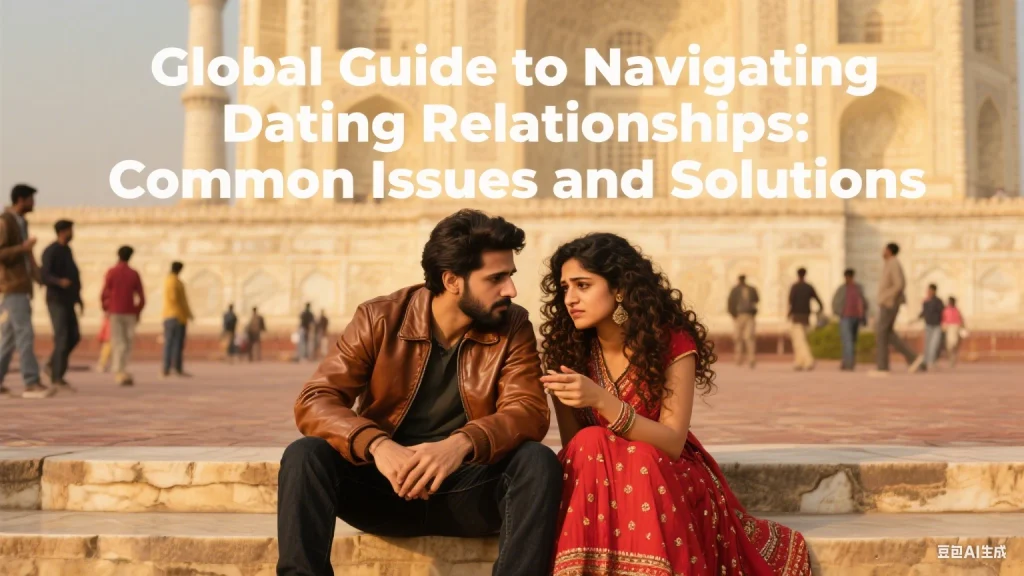Physical Address
304 North Cardinal St.
Dorchester Center, MA 02124
Physical Address
304 North Cardinal St.
Dorchester Center, MA 02124

In the vast and diverse world of dating, couples from every corner of the globe encounter a range of challenges in their relationships. Whether you’re in a bustling city in Asia, a romantic town in Europe, or a vibrant community in the Americas, the struggles and joys of being in a relationship are universal. Drawing from real – life experiences and expert insights, let’s explore some common relationship problems faced by boyfriends and girlfriends worldwide and effective solutions to overcome them.

Communication is the lifeblood of any relationship, yet it’s often a source of major contention. In many relationships, partners find themselves talking past each other, leading to misunderstandings and hurt feelings. For instance, in a relationship I’m familiar with, a boyfriend from the United States and a girlfriend from Japan faced constant communication issues. The American boyfriend was very direct in his communication, while the Japanese girlfriend was more indirect, using hints and non – verbal cues. This led to situations where the boyfriend would miss the girlfriend’s subtle signals, and she would feel unheard.
Solution: To bridge this communication gap, both partners need to practice active listening. This means fully focusing on what the other is saying, without interrupting, and seeking to understand their perspective. Additionally, they should be open about their communication styles. The boyfriend could ask the girlfriend to be more explicit when she has something important to say, and the girlfriend could try to be more direct. They could also use “I” statements, such as “I feel hurt when you say X because Y,” instead of accusatory “you” statements. This approach helps to convey feelings without sounding confrontational.
Trust is another critical aspect of relationships that frequently comes under strain. Long – distance relationships, in particular, can put trust to the test. Consider a couple where one partner is studying abroad in Australia while the other is working in their home country of Brazil. The physical distance, combined with different time zones and new social circles, can create feelings of insecurity. The Brazilian partner might start to worry about the Australian partner’s new friends and experiences, leading to constant checking of messages and phone calls, which can, in turn, make the Australian partner feel suffocated.
Solution: Honesty and transparency are key to rebuilding and maintaining trust. The couple should establish clear boundaries and expectations from the start. They could have regular video calls where they share details of their daily lives, not just the highlights but also the mundane aspects. This open sharing helps to create a sense of connection and familiarity. Additionally, they should respect each other’s privacy. Instead of constantly prying, the partner at home could trust that the one abroad is committed and handle any insecurities in a healthy way, such as through self – reflection or talking to a friend.
Conflicts are inevitable in any relationship, but how couples handle them can make or break their bond. A common scenario is when couples from different cultural backgrounds have conflicting views on family traditions. For example, a couple in which one is from an Indian family with strong traditional values and the other is from a more liberal Western family may clash over how to celebrate festivals or interact with extended family. The Indian partner may expect elaborate family gatherings and strict adherence to customs, while the Western partner may prefer a more low – key and individual – centered approach.
Solution: When conflicts arise, it’s important to approach them with respect and empathy. The couple should first take the time to understand each other’s cultural perspectives. They could have a calm conversation where each partner explains why their traditions are important to them. Then, they can look for compromises. Perhaps they could celebrate festivals in a way that combines elements of both cultures. For family gatherings, they could find a middle ground, such as having a smaller, more intimate gathering with some traditional elements. It’s also crucial to focus on the underlying feelings rather than just the issue at hand. By validating each other’s emotions, they can work towards a solution that satisfies both parties.

Maintaining a healthy level of intimacy can be a challenge in long – term relationships. As time goes by, the initial passion may fade, and couples may find themselves in a rut. In a relationship between a couple in their mid – thirties in the United Kingdom, the demands of work and raising children had taken a toll on their intimacy. They had become so focused on their daily responsibilities that they had stopped making time for each other romantically.
Solution: To reignite the spark, couples need to prioritize intimacy. This doesn’t always mean physical intimacy but also emotional and mental closeness. They could schedule regular date nights, even if it’s just a simple dinner at home after the kids go to bed. During these date nights, they can focus on each other, share their dreams, fears, and aspirations. Engaging in new activities together, such as taking a dance class or going on a weekend getaway, can also add excitement and novelty to the relationship. Small gestures like leaving love notes, giving unexpected hugs, or complimenting each other can also go a long way in re – establishing intimacy.
In conclusion, while dating relationships around the world come with their own unique set of challenges, the solutions often lie in fundamental principles of communication, trust, respect, and effort. By being aware of these common issues and implementing the suggested solutions, couples can navigate the complexities of their relationships and build stronger, more fulfilling connections, regardless of their geographical location or cultural background.